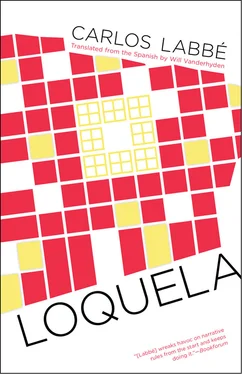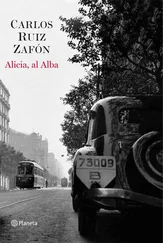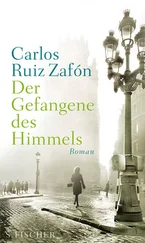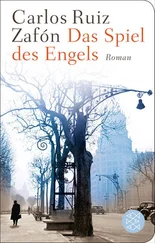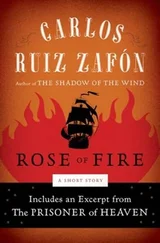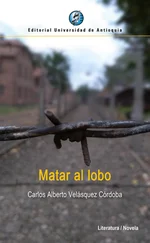And yet she preferred to tell the detectives that Violeta put the notebook in her backpack indifferently, that they sat there for several minutes without saying anything, until they caught sight of large columns of smoke pouring out of the roof of a bakery on the opposite side of the street. People were growing agitated, an old couple went over to see what was going on, the shopkeepers came curiously out into the street, and a group of children on bicycles went to alert the police at a nearby station. The plaza had emptied out where they were sitting, while on the next block the cars, the crowd, the jets of water, and the flames mixed noisily together. At last, Violeta smiled, for some reason the fire made her laugh. How cruel, how irresponsible, how foolish; that’s what Elisa thought then, but she said nothing, instead it was the albino girl who spoke: it’s so hot here, all the houses could catch fire. In the end, that was Santiago, hot or cold there was always smoke, so a fire shouldn’t be some kind of novelty. In a new silence, contaminated by the firefighters’ sirens, Elisa had begun to feel nervous again, recalling another chapter she’d read in Carlos’s novel: for several blocks, the protagonist followed the albino girl, who was looking for an address she’d written down on a piece of paper. Suddenly he’d seen her stop, mouth agape, watching how the firefighters were putting out a fire in what was left of a house. The protagonist went a little closer to listen to the discussion the albino girl was having with a captain, who was trying to disperse the onlookers; he told her that if she lived there she would be considered a suspect, since the fire had been intentional. The albino girl laughed in the firefighter’s face: think what you like, but this is not my fire. Violeta coughed before interrupting Elisa’s thoughts to tell her that she’d read that there exist three types of fire, explosive fires, flaming fires, and smoking fires; she preferred the first ones. From a distance someone was trying to evacuate people with a megaphone, but nobody was moving and the air was growing heavier all the time. Violeta insisted that she hated smoke, then she said that this wasn’t her fire. Elisa didn’t tell the detectives about any of the coincidences; instead she stated that she’d stared at Violeta and asked what she was writing in her notebook. She wanted to threaten her directly, to get her to stop sending messages to her boyfriend, to have her leave them in peace, but she didn’t talk about that either. She was starting to like Violeta and, at the same time, she knew they’d never be friends; she hadn’t grown paler in that moment, that was impossible, nor had she blushed, Elisa explained. She had simply answered with a different face: she was writing about a dream she’d had. Elisa didn’t know what to say, she felt arrogant, intrusive, uncomfortable. As if all the weight of the silence of that conversation was on top of her, without pausing she said the first thing that came into her head: many of her friends had dream notebooks and all of them would rather burn those pages than let anyone see them, except for the pages they were forced to write for their psychologist. The wail of a siren interrupted her. The firefighters tried in vain to disperse the crowd, hypnotized by the flames that were swallowing the roof of the bakery. Violeta covered her ears. Elisa did the same. When calm returned, the albino girl put her hand on the zipper of her backpack and said in a low voice that she had the same dream every night, though the faces and names of those vile men changed. The smoke lowered across the plaza. The albino girl smiled at Elisa, coughed, stood up, and walked away. She never saw her again, she assured the detective. Later on she’d swear that Carlos’s novel, which they discovered in Violeta’s house, had never left her hands.
December 9 th
From here onward the only excision will consist in referring to you with just the initial of your first name. I’m sitting at the base of a tree in the Plaza de Armas, I’m not in Neutria and it seems like I won’t ever be; I lift my head and can see perhaps the only peaceful space in this city of shrieking and taunting: the façade of the cathedral, lit from below. The severe, illuminated statue of the carpenter Joseph, I guess, and above it a glimmering point, the only star in the blind night of Santiago, a night of walls and ceilings in which I’m trapped. The plaza, the new old Plaza de Armas is the only place where I feel alone, where I can be a stranger and weep with my hand covering my face, hearing the songs of the fanatics who preach about the coming inferno, that inferno is already here; the only place I can weep in silence with eyes closed, while people crowd together in order to laugh loudly at two clowns who are also shrieking horrors in the pedestrian walkway, where I can sit down and weep after having walked for several hours, trying to find a miserable church and its silence. If I’d been able to come before God in the penultimate pew, face to the floor, asking why I have to lose you, why it’s permitted, asking for an answer with the cynicism of knowing that I only ask so that you’ll come back, that I want to believe that God exists and there are places that do make sense, where you’ll always be waiting for me.
Like an act of honesty and a rupture of the vice of the lie, of obliqueness, that has allowed me to tolerate the great shame of living in this time and in this city of pure death, of beggars, of children coming to hospitals for the beatings and violations of their parents, while we close our eyes so as not to disturb the clean and kind home we’re creating on the page; to escape from this vice of creating fictions that aren’t as disgustingly transitory as the streets of Santiago, as the gaze of the residents of Santiago, as my writing is filthy; to stop being the writer who doesn’t let the clamor and stench enter his room — because you can’t work like that — who doesn’t let the senselessness of his protagonist touch him in any word, because his work is to write, transcendence be damned; for that I’ll sacrifice the narrative perfection of my novel. You know that I’d thought of closing the puzzle with the story that occurred in Neutria, with the past, with the explanation of who was going to kill whom, when, and why. No. Once I told C that I was going to make my novel out of the days, out of what the facts wrote for me. Well, here I am. Trembling because I’m alone after having wept when I discovered that I will not have you if not in transcendence. Pounding on the doors of churches that are closed at this hour of the night. I love you so much and I leave you until next time, until the end of a novel that I thought was worthwhile because in it I was going to save you. I’ll write you every day, whenever I can, these letters, until we are together again, wherever it may be; nothing will matter to me, I’ll pay no attention to any character, to any action. Objects will cease to be named so that around me everything will begin to disappear, so that the limits of the place where we live might be believable. I’ll stop being a voice, I’ll be me, I want to go back to speaking sentences and have you by my side, kissing me, telling me what to say.

December 24 th
To save you would be beautiful if I could go where I’m going without having to leave the place where I’ve been. I recite your return letter from memory; you felt me naked against your naked back and I love you. With you I am part of something more, flesh that isn’t flesh that will cool but is part of a heartbeat; yours that I hear quicken, your ear on my chest, a movement that traverses everything and includes us when our pulses beat as one, your tongue in mine; you give where you receive, a slap, my fingers hurt and yet it is your fingers that burn against my skin, you remove them and the skin is left bloodless, white, burning, painful. The body is one; a man who is a woman looks to the heavens and between two moans hears the never-still silence of God’s contemplation as I want to imagine it; you are the one I could enter without leaving myself. In that moment I looked up and you didn’t even tell me that you understood, instead you just stretched out your hand from below to open my eyelids. To save you and together we’d write the end of the novel.
Читать дальше
